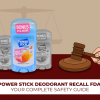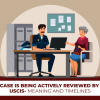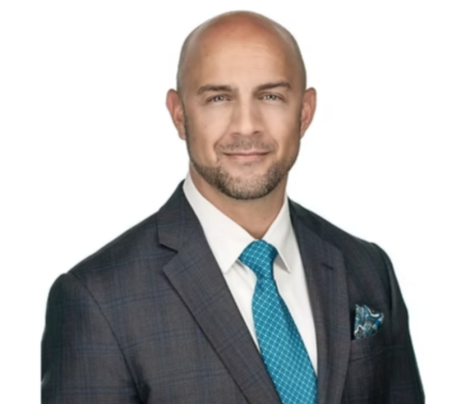
In the realm of personal injury law, navigating the labyrinthine process of making a claim can often seem daunting, particularly in the unique legal environment of Davie, FL. The intricate facets of identifying responsible parties, documenting injuries, and the critical importance of maintaining accurate medical records can pose significant challenges.
Expert lawyers in this field provide invaluable advice, illuminating the path from the initial reporting of the incident through the complexities of preparing for a lawsuit and onto the strenuous process of settlement negotiations. Yet, this is only the beginning of the journey. What should one anticipate when proceeding to trial? And what steps need to be considered post-trial? The answers to these and more nuanced questions await your exploration.
Understanding Personal Injury Claims

Navigating the labyrinth of personal injury claims requires understanding key principles, including the definition of a personal injury, the types of incidents that qualify, and the legal procedures involved. A personal injury claim is a legal case you can initiate when you’ve been harmed due to someone else’s negligence or intentional act. The incidents that qualify range from auto accidents and slip and fall cases to medical malpractice and product liability cases.
Understanding claim timelines is crucial. These can vary based on the nature of the injury, the complexity of the case, and the jurisdiction in which the claim is filed. Generally, an individual has a limited period from the date of the incident to file a claim, known as the statute of limitations.
Equally important is knowing your rights as a victim. You have the right to seek compensation for your injuries, the right to legal counsel, and the right to a fair and impartial trial. By fully comprehending these elements, you can navigate the personal injury claim process more effectively, ensuring your rights are protected, and your claim is handled appropriately with the assistance of a personal injury lawyer in Davie, FL.
Identifying Responsible Parties
In the pursuit of a successful personal injury claim, discerning the identity of the responsible parties is of critical importance. As we shift our focus to this vital step, we will explore the complexities of determining liability factors and the legal obligations involved. This will equip you with the necessary insight to ensure the onus is placed correctly and justice is sought appropriately.
Determining Liability Factors
Understanding who is at fault in a personal injury case requires meticulous investigation and clear interpretation of the law, two tasks that expert lawyers in Davie, Florida, excel in. To determine liability, they conduct a thorough liability laws overview, considering every detail with a keen eye. Involved parties, degree of harm, nature of the incident, and the actions or inactions that led to it are all scrutinized. The comparative negligence principle guides this process.
This legal concept acknowledges that more than one party can share blame for an accident, and so the compensation awarded is adjusted according to each party’s level of fault. Thus, determining liability accurately is crucial in securing a fair resolution in personal injury claims.
Legal Obligations Involved
Identifying the responsible parties in a personal injury case is a complex task that requires a deep understanding of legal obligations and a thorough examination of the incident. This process involves exploring all potential sources of liability while considering possible legal defenses and statute limitations.
Identifying all potential defendants is crucial to ensure that the compensation claim is filed within the statute limitations. Failure to do so can lead to claims being barred, leaving victims without recourse. Defendants, such as contributory negligence or assumption of risk, may also raise legal defenses.
Therefore, understanding these legal obligations is paramount in successfully navigating personal injury claims in Davie, FL. Expert lawyers can provide invaluable guidance in these intricate matters.
Documenting Your Injuries
When pursuing a personal injury claim, the importance of accurately documenting your injuries cannot be overstated. This process involves thorough medical documentation, a detailed account of physical injuries, and the strategic use of photographic evidence. This meticulous record can significantly strengthen your case, providing unequivocal proof of your injuries and their impact on your life.
Importance of Medical Documentation

In the realm of personal injury claims, the role of comprehensive medical documentation cannot be overstated, providing an indispensable foundation for establishing the extent and impact of your injuries. Precise medical records can prove crucial in shedding light on the impact of medical negligence, thus strengthening your claim’s credibility. Such documentation also serves as tangible evidence of the pain and suffering endured, which often includes injury-induced stress management.
A well-documented medical history can help substantiate your claim, demonstrating the correlation between the accident and your resultant injuries. As such, it is crucial to have your injuries examined and documented promptly and meticulously by medical professionals. This will enhance your legal standing, providing a robust basis for your claim.
Chronicling Physical Injuries
Building on the importance of comprehensive medical documentation, it is imperative to understand the process of chronicling physical injuries, which forms an integral part of your personal injury claim. This process is about maintaining a record of your injuries and their progression and also about implementing injury prevention strategies and pain management techniques.
Meticulously documenting your injuries can help establish the severity and longevity of your condition, aiding you in constructing a compelling claim. It also presents an opportunity to illustrate the necessity of certain treatments or interventions, thereby justifying their costs.
Chronicling physical injuries is about creating a clear, compelling narrative that encapsulates the full scope of your injuries, their impact on your life, and the steps taken toward your recovery.
Photographic Evidence Relevance
Undeniably, the utilization of photographic evidence can significantly bolster the strength and credibility of your personal injury claim, serving as a vivid, incontrovertible testament to the extent and impact of your injuries. Implementing evidence preservation techniques such as timely, detailed photography can provide a compelling narrative of your suffering, helping elucidate your case’s nuances to the court.
This form of documentation can be instrumental in establishing the severity of your injuries, demonstrating their progression over time, and illustrating the overall impact on your daily life. The inclusion of such irrefutable proof can greatly influence case outcomes, potentially leading to more favorable settlements or verdicts.
In essence, the relevance of photographic evidence in personal injury claims is paramount and should not be overlooked.
Importance of Medical Records

A key pillar to fortifying your personal injury claim is the proper management and articulation of your medical records, as these documents serve as crucial evidence of the extent, impact, and cost of your injuries. However, obtaining these records can present Record Retrieval Challenges, and Confidentiality Concerns often arise.
- Record Retrieval Challenges
- Medical institutions may have different protocols for releasing records, potentially causing delays. It is crucial to be proactive and persistent in pursuing your medical records.
- Some records may be misplaced or lost, which can be a significant obstacle in proving your case. Working with a seasoned lawyer can help you navigate these challenges.
- Confidentiality Concerns
- Privacy laws protect patient information, such as the Health Insurance Portability and Accountability Act (HIPAA). You must understand your rights and responsibilities to maintain compliance while securing necessary documents.
- Sharing your medical records with the wrong parties can jeopardize your case. Your attorney can ensure that the sensitive information is handled appropriately.
Proper medical records management can significantly impact the success of your personal injury claim. An experienced personal injury attorney can help you navigate these complex matters, ensuring your rights are protected while pursuing the compensation you deserve.
Reporting Your Incident
Promptly reporting the incident that led to your personal injury is a crucial step in strengthening your claim, as it serves to document the event and its immediate aftermath officially. Timely reporting can significantly influence the outcome of your case, as it increases witness credibility and ensures the preservation of critical evidence.
The incident location is a vital component of your report. If possible, Capture photographs or videos and note any hazards or conditions that may have contributed to the incident. This evidence can later be used to substantiate your claim of negligence. Consulting a personal injury lawyer in Davie, FL, can provide further guidance on effectively documenting your case and navigating the legal process to protect your rights.
Witness credibility also plays an integral role in your personal injury claim. If there were any eyewitnesses to the incident, their accounts could provide a third-party perspective that could corroborate your version of events. Consequently, obtaining their contact information and statements as soon as possible is essential before memories fade or details become distorted over time.
Whether you’re reporting to an insurance company, a property manager, or law enforcement, ensure that you provide an accurate, straightforward account of the incident. Do not speculate or make assumptions about the incident or your injuries. Consult your lawyer before making official statements to protect your rights and interests.
Calculating Potential Compensation
How does one calculate potential compensation in a personal injury claim in Davie, FL? This process largely depends on the specifics of the case, but the compensation formula typically considers several key factors.
- Economic Damages: These are the tangible financial repercussions of the injury. They include:
- Medical expenses: This includes costs for hospital stays, doctor visits, surgeries, medications, rehab therapies, and any future medical expenses related to the injury.
- Losing Wages If the injury has made you miss work or reduce your earning capacity, you can claim lost income.
- Non-Economic Damages: These are intangible losses that don’t have a direct cost but significantly affect your life. They encompass:
- Physical Pain and Emotional Distress: This reflects the physical pain and emotional distress caused by the injury.
- Consortium Loss: If the injury has adversely affect your marital relationships, hence you are eligible for this type of compensation.
- Punitive Damages: These damages are provided when the defendant’s conduct is malicious and reckless at the same time. Those are designed to punish the offender and deter similar behavior in the future.
Understanding the variables that factor into your compensation estimate can guide your decisions as you navigate your personal injury claim.
Working With Insurance Companies
Navigating interactions with insurance companies can be a complex aspect of personal injury claims. A thorough comprehension of insurance policies and the art of negotiating settlement offers can significantly affect your claim’s outcome. Let’s turn our attention to these crucial elements, arming you with the knowledge to manage your dealings with insurers strategically.
Understanding Insurance Policies
Delving into the complex labyrinth of insurance policies is crucial when dealing with personal injury claims, as it can significantly impact the outcome of your case. Policy exclusions and claim denials are two key areas that require close examination.
- Policy Exclusions: These are specific situations or circumstances that your insurance policy does not cover. Understanding these can help you anticipate potential challenges in your claim.
- Liability Exclusions
- Exclusions related to intentional acts
- Claim Denials: Insurance companies may deny claims for various reasons. Being aware of common grounds for denial can guide you in preparing a robust claim.
- Lack of coverage at the time of the incident
- Not meeting the policy’s reporting requirements
This understanding can greatly increase your chance of a successful claim.
Negotiating Settlement Offers
After gaining a thorough understanding of insurance policies, it becomes imperative to negotiate settlement adeptly offers with insurance companies, a process that can significantly influence the final compensation received in personal injury claims. Expertise in claim valuation is crucial during these discussions.
An accurate assessment of your claim’s worth can strengthen your position and lead to a more favorable outcome. Additionally, understanding and employing effective mediation methods can also be beneficial. This allows for a more efficient process, leading to quicker resolutions while protecting your rights. Keep in mind insurance companies aim to minimize their payouts.
Armed with knowledge and negotiation skills, you can ensure you receive the compensation you deserve.
Hiring a Personal Injury Lawyer

Engaging the services of a competent personal injury lawyer is a critical step towards securing fair compensation for damages incurred in Davie, FL. A well-informed choice hinges on two main factors: the lawyer’s credentials and the fee structures.
- Lawyer’s Credentials: This pertains to the attorney’s qualifications, experience, and track record in personal injury claims.
- Qualifications: Ensure that the attorney is duly licensed to practice law in Florida and holds an impeccable ethical record.
- Experience: Look for a lawyer with extensive experience in handling personal injury cases, especially those similar to yours.
- Track Record: A lawyer’s past success in obtaining favorable settlements or verdicts indicates their capability.
- Fee Structures: Lawyers typically charge for their services in different ways.
- Contingency Fees: Some lawyers operate on a ‘no win, no fee’ basis, where they receive a percentage of the settlement if they win the case.
- Hourly Rates: Other attorneys may charge an hourly rate for their services.
Choosing a lawyer based on these considerations can significantly improve your chances of a successful personal injury claim. Remember, a lawyer’s role is to advocate for one’s rights and help you navigate the complex legal landscape.
Preparing for a Lawsuit
Embarking on a personal injury lawsuit in Davie, FL, necessitates meticulous preparation to enhance your chances of obtaining a favorable resolution. Understanding the lawsuit timeline is crucial. Typically, it begins with the injury and progresses to filing a complaint, discovery, negotiation, trial, and potentially an appeal. This timeline can span months or even years, so patience and perseverance are vital.
The role of witnesses is another key element in lawsuit preparation. Witnesses can either make or break your case. Their testimonies may corroborate your narrative, providing substantial evidence to support your claim. Expert witnesses, particularly, can offer detailed insights about your injury, its cause, and its impact on your life, thereby strengthening your case.
Preparation also involves organizing medical records, accident reports, photographs, receipts, and any other relevant documentation. This evidence can substantiate your claim and paint a clear picture of the incident, the negligence involved, and the resultant damages. Engaging your personal injury lawyer early in this process is crucial to ensure that all aspects of your case are thoroughly prepared and presented effectively.
Settlement Negotiations Process
Navigating the intricate labyrinth of the settlement negotiations process is a pivotal stage in a personal injury claim, where the aim is to secure fair compensation without resorting to a lengthy court trial. Here, the role of mediators becomes profoundly significant, as they can facilitate a more efficient, cost-effective resolution.
Key aspects of the settlement negotiation process include:
- Initiation: This begins when the plaintiff’s attorney sends a demand letter to the opposing party, outlining the specifics of the case, including the damages suffered and the compensation being sought. This letter starts the negotiation dialogue.
- Alternative Dispute Resolution (ADR): ADR refers to methods like mediation or arbitration, which are used to resolve disputes outside of traditional court proceedings. ADR offers a less adversarial and often more efficient means of resolving legal disputes.
- Role of Mediators: Mediators are neutral third parties who assist in reaching a mutually satisfactory resolution during ADR. They can help clarify issues, assist in evaluating proposals, and provide an unbiased perspective to both parties.
- Negotiation: During this phase, both parties engage in exchanging offers and counteroffers. Effective negotiation strategies are crucial for both sides to move toward a settlement that is acceptable to both parties.
- ADR in Negotiation: Incorporating ADR methods into the negotiation process can help expedite reaching a resolution. These methods provide a more amicable and often more efficient resolution to disputes.
- Mediators in Negotiation: Mediators play a significant role in facilitating communication between all parties involved. They ensure that each party’s viewpoints are considered, which can lead to a more just and equitable resolution for everyone involved.
Understanding this complex process is vital in achieving a fair resolution in a personal injury claim.
Going to Trial: What to Expect
When the labyrinth of settlement negotiations fails to yield a satisfactory result, the personal injury claim often evolves into a courtroom battle. At this stage, understanding the dynamics of a trial becomes paramount. One of the key elements to grasp is courtroom etiquette, which entails knowing how to conduct oneself appropriately during court proceedings. This includes dressing appropriately, showing respect to the court officials, and maintaining composure, irrespective of the trial outcomes.
Witness testimonies can often significantly sway the direction of a personal injury case. It is crucial for the injured party and their legal team to gather credible witnesses who can attest to the incident’s facts and the resulting injuries. This might include eyewitnesses to the accident, medical experts who can speak to the extent of the injuries, or even vocational experts who can address the impact of the injuries on the victim’s ability to work.
In essence, going to trial for a personal injury claim in Davie, FL, is a complex process that requires thorough preparation, understanding of courtroom dynamics, and strategic use of witness testimonies. A seasoned lawyer can guide you through this process, ensuring that your rights are adequately protected.
Post-Trial Steps and Considerations
Once the trial concludes, understanding the necessary post-trial steps and considerations is crucial to ensure that the verdict’s implications are handled effectively and appropriately. These steps involve the implementation of the verdict, the potential for appeal processes, and the finalization of jury deliberations.
Here are some of the main post-trial considerations:
- Understanding the Verdict: Depending on the complexity of the case, the verdict may need to be evaluated in detail. This includes assessing the financial compensation awarded and the potential implications on the parties involved.
- Appeal Processes: If the outcome of the trial is unfavorable, the defendant may choose to appeal. This involves:
- Filing a notice of appeal
- Presenting a compelling argument for why the original decision should be overturned
- Preparing for potential retrial
- Finalizing Jury Deliberations: Even after the trial concludes, there may be ongoing interactions with the jury, such as addressing any unresolved questions or concerns they may have.
Frequently Asked Questions
If affordability is a concern, consider seeking pro bono services from legal aid societies. Additionally, insurance settlements can also provide financial relief. Explore all options to ensure your rights are protected in personal injury claims.
The duration of a personal injury claim in Davie, FL, can vary considerably, often taking months to years. Factors influencing this include the complexity of claim documentation and the process of settlement negotiation.
Managing the stress and emotional trauma during a personal injury claim can be aided by utilizing emotional support resources and trauma counseling services. These avenues provide coping mechanisms and therapeutic techniques to help navigate the process.
Yes, you can file a personal injury claim even if the accident was partially your fault. Florida’s Comparative Negligence law allows for claim eligibility even when the claimant shares some degree of fault.
Determining whether to pursue a workers’ compensation claim or a personal injury claim depends on the specific circumstances of the injury. Understanding claim decisions and compensation differences is crucial to making an informed decision.
Conclusion
Davie, FL, is primarily known for its vast and dynamic legal environment. It might seem a bit daunting at first to address the problems, but as time goes by, one learns to cope with these. The above article will give you a comprehensive guide about how to navigate through the claims of personal injury and things to keep in mind while preparing for a lawsuit or settling negotiations at ease. Our expert forum of lawyers would guide you the best and tailor the solution suited best to your situation.
Read Also:
- Navigating Legal Claims For Dog-Related Injuries
- The Crucial First Steps After Suffering A Personal Injury In Katy
- The Role Of Aurora Personal Injury Lawyers In Construction Accident Cases











0 Reply
No comments yet.